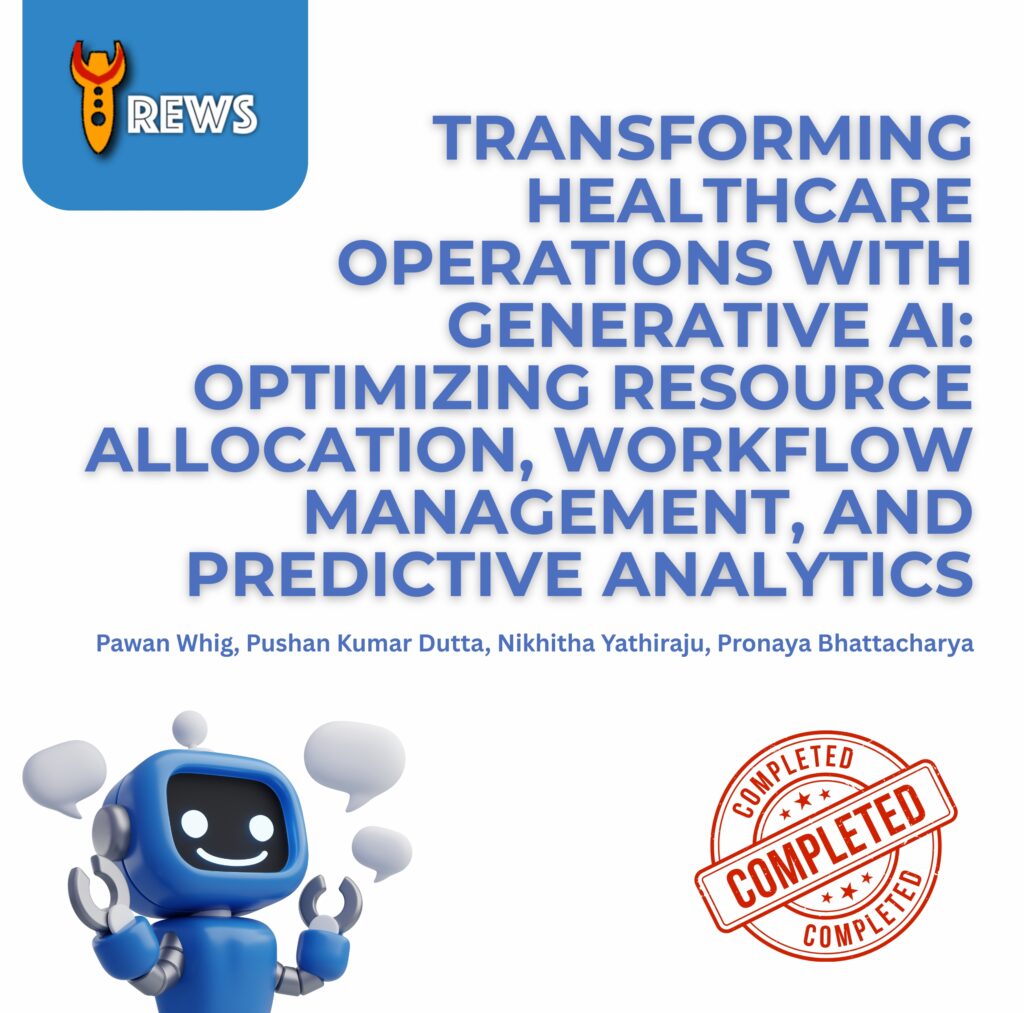 The Role of Generative AI in Healthcare Innovation
The Role of Generative AI in Healthcare Innovation
Generative Artificial Intelligence (AI) is revolutionizing healthcare by addressing key challenges such as resource allocation inefficiencies, clinical decision-making complexities, and administrative burdens. As healthcare organizations navigate increasing patient volumes and operational challenges, AI-driven solutions offer automated workflows, enhanced diagnostics, and predictive analytics to improve overall care delivery.
Integrating AI for Smarter Healthcare Systems
This study explores the implementation of Generative AI models into healthcare information systems, enabling:
-
Predictive analytics for anticipating patient inflows and optimizing resource distribution.
-
Natural Language Processing (NLP) for automating clinical documentation and extracting key insights.
-
Machine learning algorithms to support clinical decision-making and reduce administrative overhead.
Key Benefits of AI in Healthcare Operations
1. AI-Driven Predictive Analytics for Better Resource Allocation
By leveraging machine learning models, hospitals and clinics can:
-
Forecast patient admissions and adjust staffing accordingly.
-
Optimize bed management and emergency response systems.
-
Reduce bottlenecks in patient flow and enhance care efficiency.
2. Automating Clinical and Administrative Workflows
The integration of AI models via APIs into Electronic Health Records (EHRs) enabled:
-
Automated clinical documentation, reducing physician workload.
-
AI-powered appointment scheduling, improving patient experience.
-
Enhanced data exchange between AI modules and healthcare databases.
3. Ensuring Data Privacy, Security, and Regulatory Compliance
With AI handling sensitive patient data, robust security measures were implemented:
-
HIPAA-compliant encryption protocols for data protection.
-
Role-based access controls to prevent unauthorized access.
-
Regular audits and monitoring to ensure responsible AI use in healthcare settings.
Generative AI is poised to drive personalized medicine, improve diagnostics, and refine treatment planning. As AI adoption grows, systems must continue to balance innovation with ethical considerations, ensuring that AI serves as a responsible and patient-centric tool.
Authors:
Pawan Whig, Pushan Kumar Dutta, Nikhitha Yathiraju, Pronaya Bhattacharya
For more details, visit: ResearchGate Link

